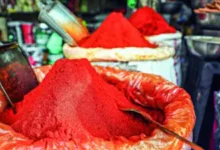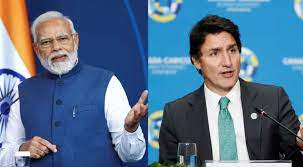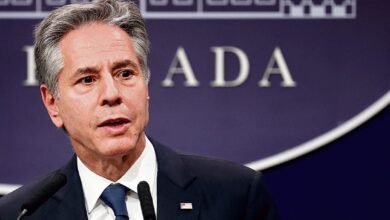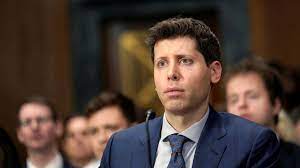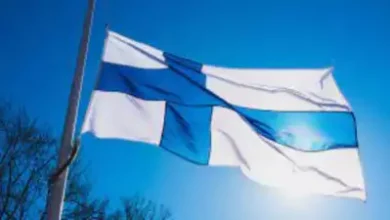Early results indicate that Putin easily wins the Russian election with record voter participation
Moscow: Despite hundreds of opponents staging a noontime protest at voting places and accusations from the US that the vote was neither free nor fair, President Vladimir Putin secured his hold on power on Sunday with a record-breaking post-Soviet landslide victory in Russia.
The outcome is meant to emphasise to the West that its leaders will have to deal with a stronger Russia, whether in war or peace, for many more years to come, according to Putin, a former KGB lieutenant colonel who first came to power in 1999.

Putin, 71, will undoubtedly win a second six-year term, which would allow him to surpass Josef Stalin and become Russia’s longest-serving leader in more than 200 years, according to the early outcome.
According to an exit survey conducted by the Pollster Public Opinion Foundation (FOM), Putin received 87.8% of the vote, the highest percentage of any candidate in Russia’s post-Soviet history. Putin was ranked at 87% by the Russian Public Opinion Research Centre (VCIOM). According to the first official findings, the polls were correct.
Results indicated that ultra-nationalist Leonid Slutsky finished in fourth, newcomer Vladislav Davankov came in third, and communist contender Nikolai Kharitonov came in second with little less than 4%.
The National Security Council spokeswoman for the White House said, “Given how Mr. Putin has imprisoned political opponents and prevented others from running against him, the elections are obviously neither free nor fair.”
The election takes place a little more than two years after Putin ordered the invasion of Ukraine, which set off the worst European war since World War Two. “Special military operation” is how he characterises it.
The three-day election has been clouded by war as Ukraine has been attacking Russian oil refineries, shelling Russian areas, and attempting to breach Russian borders with proxy forces—a move that Putin threatened to punish.
Given his dominance over Russia and the lack of serious opponents, Putin’s reelection appeared certain, but the former KGB operative wanted to demonstrate the enormous support of Russians. When the polls closed at 1800 GMT, the national turnout was 74.22%, above the 67.5% recorded in 2018, according to election authorities.
Russians were urged to attend a “Noon against Putin” demonstration to express their disapproval of a leader they see as a corrupt despot. Navalny, Putin’s most well-known opponent, passed away in an Arctic jail last month.
The number of Russians who participated in the opposition marches, which were well guarded by tens of thousands of police and security personnel, was not independently calculated. Russia has 114 million voters.
At midday, Reuters journalists saw long lines of several hundred or perhaps thousands of people at voting places in Moscow, St. Petersburg, and Yekaterinburg as voters, particularly younger ones, began to arrive.
Even though there were few obvious indicators that set them apart from other voters, some claimed to be protesting.
Across Asia and Europe, hundreds of people flocked to voting places at Russian diplomatic posts as midday approached. Cheers and cries of “Yulia, Yulia” were heard as Yulia, Navalny’s widow, arrived at the Russian embassy in Berlin.
Supporters of Navalny who were exiled posted videos of demonstrations both domestically and internationally on YouTube.
“MANY REALISED THEY WERE NOT ALONE.”
According to Ruslan Shaveddinov of Navalny’s Anti-Corruption Foundation, “we proved ourselves, all of Russia, and the whole world that Putin is not Russia (and) that Putin has seized power in Russia.” “Our victory is that we, the people, defeated fear; we defeated solitude; many people saw they were not alone.”
Russia saw at least 74 arrests on Sunday, according to OVD-Info, a watchdog organisation that tracks the repression of opposition.
There have been sporadic protests over the last two days, with some Russians setting polling booths on fire or pouring green dye into vote boxes. Pictures of tampered ballots with anti-Putin inscriptions were shared by opponents.
However, the opposition has lost its most powerful leader with Navalny’s passing, and other significant opposition members are either dead, imprisoned, or overseas.
Putin is seen by the West as a murderer and an authoritarian. Last month, U.S. President Joe Biden called him a “crazy SOB..”. He is charged with a war crime by the International Criminal Court in The Hague for allegedly kidnapping Ukrainian children, a claim the Kremlin disputes.
Volodymyr Zelenskiy, the president of Ukraine, said on Sunday that Putin wanted to hold power indefinitely. “This election impersonation is not and cannot be legitimate. The Hague ought to be hosting this person’s trial. That is what we need to be sure of.
Putin frames the conflict as a centuries-old struggle against a collapsing and decadent West that, by intruding on Moscow’s sphere of influence, he claims humiliated Russia in the wake of the Cold War.
Nikolas Gvosdev, head of the National Security Programme at the Foreign Policy Research Institute in Philadelphia, told the Russia Matters project that “Putin’s task is now to imprint his worldview indelibly into the minds of the Russian political establishment” to secure a like-minded successor.
“For a U.S. administration that hoped Putin’s Ukraine adventure would be wrapped up by now with a decisive setback to Moscow’s interests, the election is a reminder that Putin expects that there will be many more rounds in the geopolitical boxing ring.”
According to Western intelligence leaders, Russia’s election represents a turning point for the West and the conflict in Ukraine.
Ahead of the November presidential election, which will put Biden against his predecessor Donald Trump, whose Republican party in Congress has obstructed military assistance for Kyiv, support for Ukraine is entwined with domestic politics in the United States.
Despite Kyiv’s 2022 invasion recapture, Russian troops had advanced after the previous year’s futile Ukrainian counteroffensive.
The Biden administration worries that if Kyiv doesn’t get additional assistance soon, Putin may take over over a larger portion of the country. China may feel emboldened by it, according to CIA Director William Burns.
Elections were also held in four additional Ukrainian territories that Moscow partially controls and has claimed since 2022, as well as in Crimea, which it annexed from Ukraine in 2014. Kyiv considers the election held on seized territory to be invalid and unlawful.

